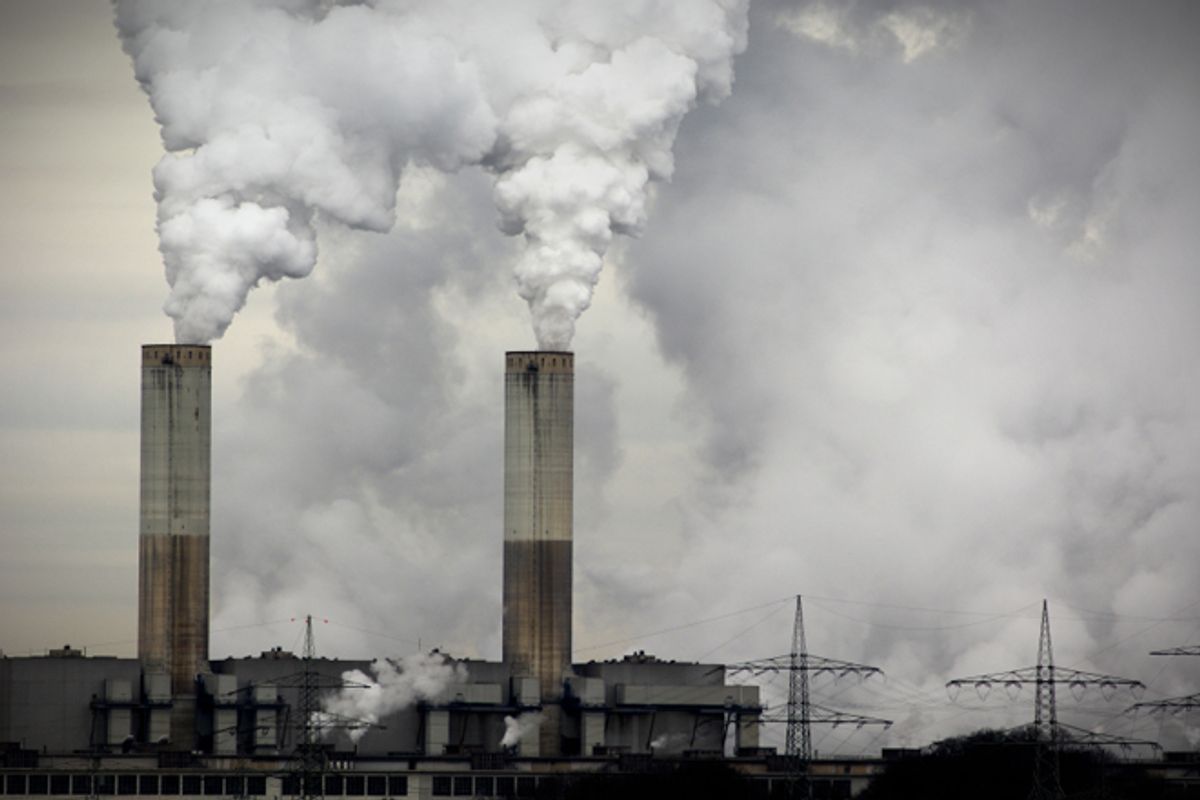On Tuesday, Alabama state officials said they had a right to their state’s coal supply because God had given it to them. On Tuesday and Wednesday, religious leaders spoke out on the opposite end of the spectrum: Carbon pollution is actually an “affront to God.”
In a meeting with three administrators from the Environmental Protection Agency, David Kepley, an elder and deacon at the Providence Presbyterian Church, quoted a passage from Leviticus that promotes environmental stewardship and responsibility: “God said ‘the land is mine; with me you are but aliens and tenants. Throughout the land that you hold, you shall provide for the redemption of the land.”
Kepley interpreted the passage: “To me this means that to be wasteful of the land’s bounty or to despoil it with substances that are harmful to people or other life forms is not just unproductive, but is an affront to God. In my view, the EPA has identified one of those areas where we humans have ignored our role as good stewards of the Creation.”
ClimateProgress reports:
Kepley was just one of at least 28 religious leaders who urged the EPA at two D.C. hearings on Tuesday and Wednesday not to weaken -- and at times to strengthen -- its proposed regulations on carbon emissions from coal plants. The proposed rule represents the Obama Administration's most ambitious move yet to combat one of the main drivers behind climate change.
"In the religious communities with which I work, people are heart-sick about the role of fossil fuels in producing the heat-trapping gases that are causing climate change," said Joelle Novey, the director of Interfaith Power & Light, a non-profit that engages religious communities on climate issues. "They are working to reduce their electricity use in their sanctuaries and at home. They are climbing up on ladders to change to more efficient lightbulbs. They are working together to support clean energy through their energy bills."
The EPA's new measures have drawn much criticism from Republicans, the party generally associated with devout Christianity, but in the past two days, leaders from a variety of sects, from Presbyterian to Evangelical to Methodist, have spoken out in support of the rule.
"Before man was asked to love his neighbor, love God, or care for the least of these, he was asked to love the Earth," said Reverend Marjani Dele, minister of missions at Plymouth Congregational United Church of Christ. "You could say that it was a type of first commandment."
So who is right? What does the Bible actually tell us to do?
The Bible reads:
"Then God said, 'Let us make man in our image, in our likeness, and let them rule over the fish of the sea and the birds of the air, over the livestock, over all the Earth, and over all the creatures that move along the ground.' ... God blessed them and said to them, 'Be fruitful and increase in number; fill the Earth and subdue it. Rule over the fish of the sea and the birds of the air and over every living creature that moves on the ground.'" (Genesis 1:26 and 28)
Some Christians (i.e., the aforementioned Alabamans) have interpreted this passage to mean that the Earth and its contents belong to us, and thus we should feel free to exploit its bounty. But the language of the Bible goes on to be much more explicit about the fact that the Earth is God's Earth, don't touch:
"When you lay siege to a city for a long time, fighting against it to capture it, do not destroy its trees by putting an axe to them, because you can eat their fruit. Do not cut them down. Are the trees of the field people, that you should besiege them?" (Deuteronomy 20:19)
And:
"The Earth is the Lord's, and everything in it, the world, and all who live in it." (Psalm 24:1)
It seems that when people interpret scripture with good intentions, religion can be pretty beautiful.



Shares